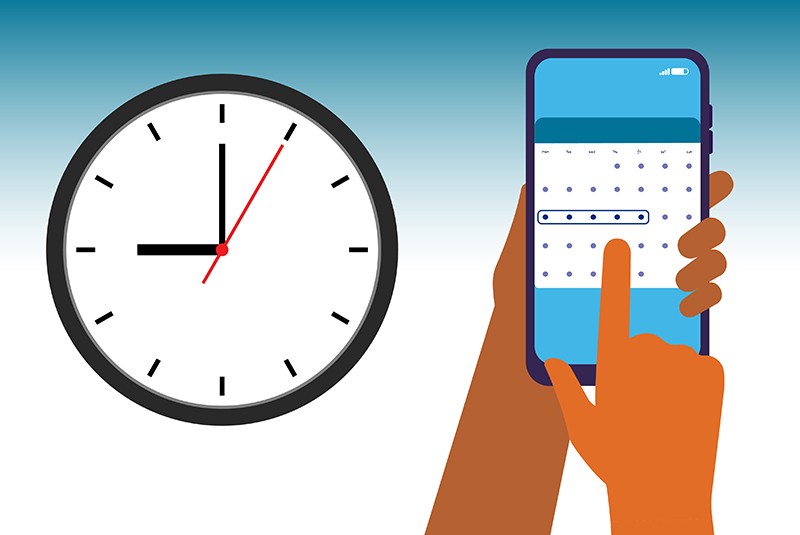
Quality sleep is essential for overall health and well-being. Establishing healthy sleep habits can improve cognitive function, mood, productivity, and physical health. In this step-by-step guide, we will explore the importance of healthy sleep habits and provide practical tips to enhance your sleep quality.
Step 1: Understanding the Importance of Quality Sleep
A good night's sleep is crucial for optimal functioning. Quality sleep enhances memory, concentration, and creativity, while also boosting immune function and regulating mood. On the other hand, poor sleep can lead to irritability, fatigue, weight gain, and increased risk of chronic conditions such as diabetes and heart disease. Recognizing the signs of sleep deprivation, such as difficulty concentrating, moodiness, and frequent daytime drowsiness, is the first step towards addressing sleep issues.
Step 2: Establishing a Consistent Sleep Schedule
Consistency is key when it comes to healthy sleep habits. Setting a regular bedtime and wake-up time helps regulate your body's internal clock, making it easier to fall asleep and wake up naturally. Even on weekends, it's important to maintain a consistent sleep schedule to avoid disrupting your circadian rhythm. Gradually adjusting your sleep schedule by going to bed and waking up 15 minutes earlier each day can help reset your internal clock and improve your sleep quality.

Step 3: Creating a Relaxing Sleep Environment
Creating a relaxing sleep environment is essential for quality sleep. Investing in a comfortable mattress and pillows that support your body can improve sleep quality and reduce discomfort. Controlling light and noise in the bedroom is also crucial for promoting a restful sleep environment. Dimming the lights, using blackout curtains, and wearing earplugs can help block out disturbances and signal to your body that it's time to sleep. Additionally, incorporating relaxation techniques such as deep breathing exercises or gentle stretching before bedtime can help calm the mind and prepare the body for sleep.
Step 4: Developing a Pre-Sleep Routine
Winding down before bed is important for signaling to your body that it's time to sleep. Engaging in calming activities such as reading a book, taking a warm bath, or practicing meditation can help relax the mind and body. Avoiding stimulating activities like watching TV or using electronic devices before bed can disrupt your sleep-wake cycle, making it harder to fall asleep. Establishing a consistent pre-sleep routine can help cue your body that it's time for rest and relaxation.

Step 5: Implementing Healthy Sleep Habits Throughout the Day
Healthy sleep habits extend beyond just bedtime. Regular exercise can improve sleep quality by reducing stress and anxiety, promoting relaxation, and regulating your sleep-wake cycle. Managing caffeine intake, especially in the afternoon and evening, is important for preventing sleep disturbances. Consuming a healthy diet rich in fruits, vegetables, whole grains, and lean proteins can enhance sleep quality by providing essential nutrients that support optimal sleep health.
Step 6: Managing Stress and Anxiety
Stress and anxiety can significantly impact sleep quality. Incorporating relaxation techniques such as mindfulness meditation, progressive muscle relaxation, or journaling can help manage stress and promote better sleep. Seeking professional help from a therapist or counselor if stress and anxiety are overwhelming is essential for addressing underlying issues that may be affecting your sleep.

Step 7: Monitoring and Tracking Your Sleep Habits
Keeping a sleep journal can help you track your sleep patterns and habits to identify areas for improvement. Recording information such as bedtime, wake-up time, sleep duration, and any factors that may have affected your sleep can provide valuable insights into your sleep quality. Using technology such as sleep tracking apps or devices can also help monitor your sleep patterns and provide personalized recommendations for optimizing your sleep.
In conclusion, prioritizing healthy sleep habits is essential for overall well-being. By understanding the importance of quality sleep, establishing a consistent sleep schedule, creating a relaxing sleep environment, developing a pre-sleep routine, implementing healthy sleep habits throughout the day, managing stress and anxiety, and monitoring and tracking your sleep habits, you can enhance your sleep quality and experience the numerous benefits that come with a good night's rest. Start implementing these tips today to improve your sleep and overall health.
FAQs
Q: Why is quality sleep important?
A: Quality sleep is important for enhancing memory, concentration, immune function, mood regulation, and overall well-being.
Q: How can I improve my sleep quality?
A: You can improve your sleep quality by establishing a consistent sleep schedule, creating a relaxing sleep environment, developing a pre-sleep routine, implementing healthy sleep habits throughout the day, managing stress and anxiety, and monitoring your sleep habits.
Q: What are some relaxation techniques to help with sleep?
A: Relaxation techniques such as deep breathing exercises, meditation, reading, taking a warm bath, and gentle stretching can help relax the mind and body before bedtime.
Q: How does exercise impact sleep quality?
A: Regular exercise can improve sleep quality by reducing stress and anxiety, promoting relaxation, and regulating your sleep-wake cycle.
Q: How can I manage stress and anxiety for better sleep?
A: Managing stress and anxiety can be done through relaxation techniques like mindfulness meditation, progressive muscle relaxation, journaling, and seeking professional help if needed.
Q: Why is it important to monitor and track sleep habits?
A: Monitoring and tracking your sleep habits can help you identify areas for improvement, understand your sleep patterns, and make adjustments to enhance your sleep quality.


0 Comments